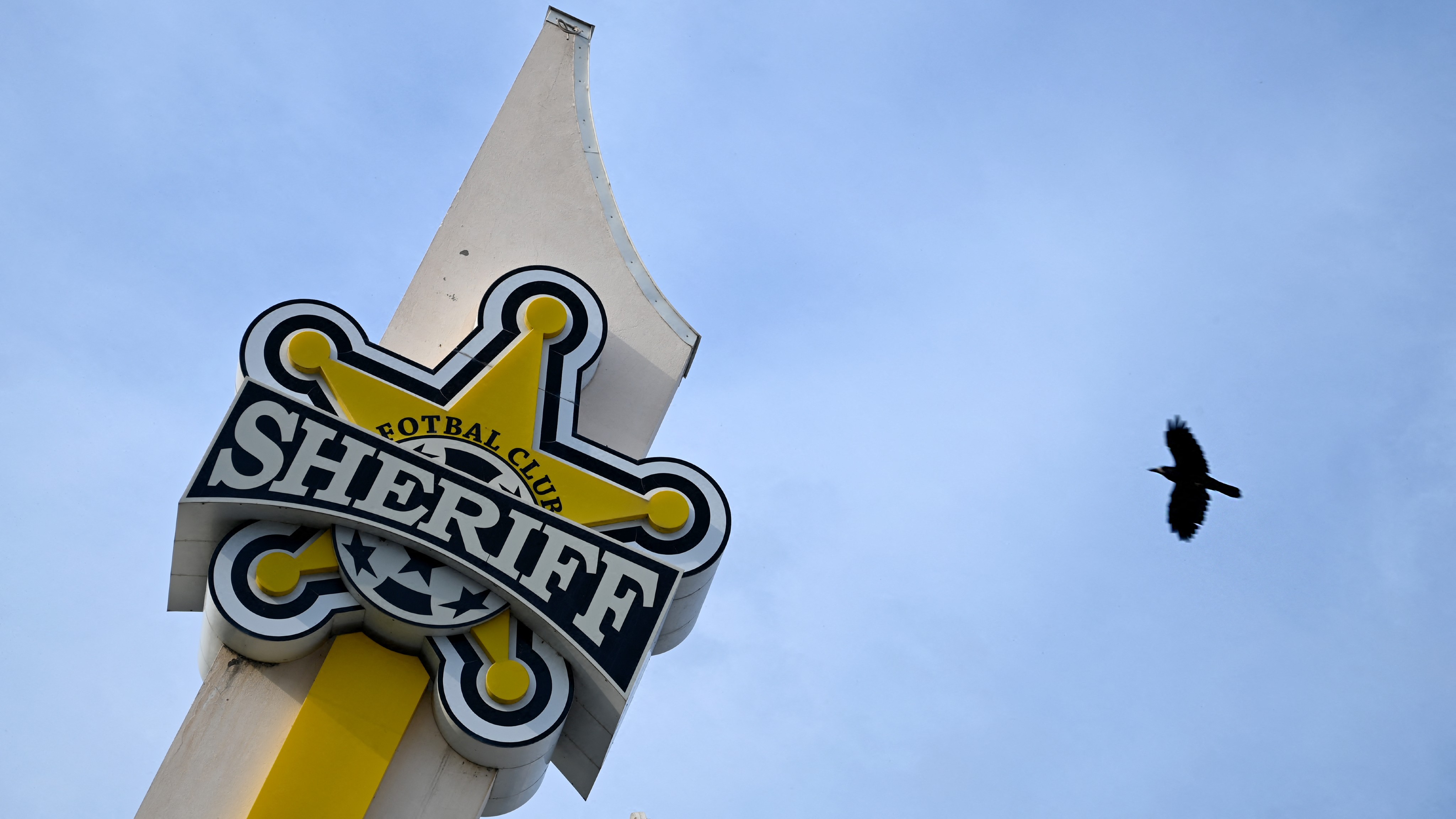This year’s Champions League features an improbable upstart: FC Sheriff, a club run by an eponymous company built on murky money in a pro-Russian separatist enclave of Europe’s poorest country, Moldova.The would-be state, which harkens back to its Soviet past with a towering Lenin statue in the centre of its administrative hub, Tiraspol, broke away from Moldova in a short civil war in the early 1990s.Thirty years later, the little-known Transnistria region with its own border police, army, currency and hammer-and-sickle-emblazoned flag has not been recognised internationally but is propped up by free Russian gas and some 1,500 troops.Sheriff Ultras ©AFPThe territory, however, is effectively run by the Sheriff holding company that sports a five-pointed sheriff’s star as its logo.Owned by a former Soviet police officer, Viktor Gushan, the conglomerate controls businesses ranging from a cognac distillery and caviar farm to supermarket and gas station chains – and the football club making waves in Europe.”Viktor Gushan is the person with the most influence here, both in politics and economics,” said Anatoly Dirun, director of the Tiraspol School of Political Studies.Dirun, a former member of the ruling Renewal party financed by Sheriff, said that besides business, Gushan’s people also hold all of the main leadership posts in the breakaway region, from parliament to the prime minister’s seat to the presidency.Gushan founded Sheriff in 1993 with fellow police officer Ilya Kazmaly.The two 59-year-olds spent the following years buying up former Soviet factories – and fighting off competitors.Sheriff fan (©AFP)Helping lead Transnistria’s so-called “privatisation” – the selling off of Soviet-era state-owned businesses to private owners – in the 1990s and early 2000s was Valery Litskay, the separatist state’s former foreign minister and chief advisor to its first self-styled president.”Sheriff won the competition,” Litskay told AFP, explaining they offered “the best prices and guarantees” that the factories would “continue running”.But the former official said the company has a “very dark criminal history”, recalling that they had a “tough fight” with competitors.”If you go to our cemeteries, you will see whole alleys of bandits,” he said.Gushan, Sheriff’s co-founder and president, declined AFP’s interview request.Litskay said the region’s leadership “did not track who killed whom,” conceding, “yes, it’s not very pretty, but that’s the reality of economic life.”It’s “better to have a corporation of police”, he added, than a “corporation of bandits.”As they rose to power, the police officers launched new businesses.In 1997, they founded FC Sheriff, who earlier this month shocked Shakhtar Donetsk in their first group stage game and face Spanish giants Real Madrid on Tuesday. Dubbing Transnistria “Sheriff Republic”, investigative outlet RISE Moldova found that by 2015 one third of all the money from the separatist enclave’s budget was paid out to companies owned by Sheriff.Today, its companies export goods ranging from textiles to construction materials across Europe and caviar as far as the United States and Japan.Vadim Krasnoselsky, the current head of Transnistria whose presidential campaign was financed by Sheriff, hails the company as the region’s “main taxpayer”.”They create new jobs, they invest,” he told AFP. “They are a reliable partner, they can be trusted.”Their monopoly, though, may not be a boon for Transnistria.The region is hemorrhaging young people, with its population halving to as low as 250,000 from around 500,000 during the Soviet era, according to several estimates.The main reason, analysts say, is Transnistria’s average wage of $250-300 per month – lower than the rest of Moldova.Sheriff supermarket (©AFP)Sheriff petrol station (©AFP)In a 2006 referendum 97 percent of Transnistria’s population wanted the region to join Russia. Now there is a “diversification of choice among the youth,” said Andrei Mospanov, deputy director of the Tiraspol-based ISPIRR think tank.Like all of his older friends, Andrei, 17, said he plans to leave for university to Russia or Chisinau.”I don’t see any development in Transnistria,” he told AFP.New Moldovan President Maia Sandu has said she wants her country to join the European Union and demanded Russian troops leave Transnistria.But the breakaway statelet still affirms its allegiance to Moscow.Sheriff stun Real Madrid with unlikely victory at BernabeuIn Tiraspol, a billboard reads “Russia in our hearts,” while a portrait of Russian President Vladimir Putin hangs on a wall in Krasnoselsky’s offices.Negotiations on ending the frozen conflict have stalled for years – and insiders say that’s because the leadership is happy with things just as they are.”Russia gives us free gas and troops, and they get their point of influence” on Europe, said Litskay. “We are very happy with the status quo.”© Agence France-Presse

